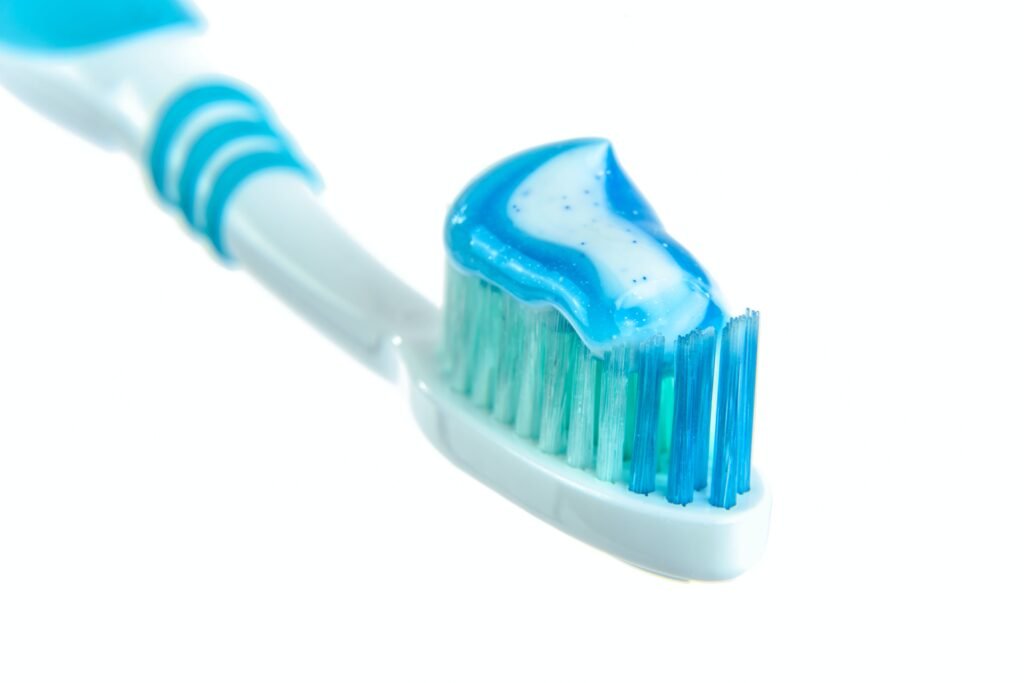Are you tired of dealing with painful cavities and expensive dental treatments? Look no further! In this article, you’ll discover simple yet effective strategies to take control of your dental health and prevent cavities effortlessly. Taking a proactive approach to dental hygiene is not only easy, but it can also save you time, money, and discomfort in the long run. From incorporating daily habits to making smart dietary choices, you’ll learn practical tips to maintain a healthy smile and keep those dreaded cavities at bay. Say goodbye to dental woes and hello to a brighter, cavity-free future!

This image is property of images.pexels.com.
Understanding Cavities
What are cavities?
Cavities, also known as dental caries, are areas of tooth decay that occur when bacteria in our mouths produce acids that erode the outer layer of our teeth, known as the enamel. These small holes in the teeth can grow bigger over time if left untreated, causing pain, infection, and even tooth loss.
Causes of cavities
Cavities are primarily caused by poor oral hygiene and the presence of bacteria in the mouth. When we consume sugary or starchy foods and beverages, the bacteria in our mouths feed on these carbohydrates and produce acids that attack the enamel. Additionally, inadequate brushing and flossing allow bacteria to accumulate and thrive, increasing the risk of developing cavities.
The importance of preventing cavities
Preventing cavities is essential for maintaining good oral health. Untreated cavities can lead to severe tooth damage, pain, and infections. They can also have a significant impact on our overall health and well-being. By understanding the causes of cavities and implementing preventive measures, we can avoid unnecessary discomfort, costly dental treatments, and potential complications in the future. Taking a proactive approach to dental health is key to preventing cavities effectively.
Maintaining Proper Oral Hygiene
Brushing your teeth
Regularly brushing your teeth is a crucial step in preventing cavities. Dentists recommend brushing at least twice a day, ideally in the morning and before bed, for two minutes each time. Brushing helps remove plaque and bacteria from the surfaces of the teeth, reducing the risk of cavities.
Choosing the right toothbrush and toothpaste
Choosing the right toothbrush and toothpaste can significantly impact your oral hygiene routine. Opt for a toothbrush with soft bristles and a comfortable grip, as hard bristles and aggressive brushing can damage the enamel and irritate the gums. When it comes to toothpaste, select one that contains fluoride, which helps strengthen the enamel and prevent cavities.
Flossing and interdental cleaning
While brushing is essential, it cannot effectively clean the areas between teeth. That’s where flossing and interdental cleaning come in. Flossing at least once a day removes food particles and plaque from between the teeth and along the gum line. Interdental cleaning tools, such as dental picks or water flossers, can also be used to enhance your oral hygiene routine.
Using mouthwash
Mouthwash is a valuable addition to your oral hygiene routine. It helps kill bacteria, freshens breath, and can even contain fluoride to strengthen the enamel. Rinse your mouth with a fluoride mouthwash after brushing and flossing to further protect your teeth from cavities. Remember to follow the instructions on the mouthwash bottle for the recommended duration of rinsing.

This image is property of images.pexels.com.
Healthy Eating Habits
Reducing sugar consumption
Reducing sugar consumption is crucial for preventing cavities. Sugar feeds the bacteria in our mouths, leading to acid production and enamel erosion. Limit your intake of sugary snacks, sodas, and juices. Opt for healthier snack alternatives like fresh fruits and vegetables, and drink water instead of sugary beverages whenever possible.
Choosing teeth-friendly foods
Incorporating teeth-friendly foods into your diet can contribute to better oral health. Foods rich in calcium, such as dairy products and leafy greens, help strengthen the teeth. Crunchy fruits and vegetables, like apples and celery, can stimulate saliva production, which neutralizes acids and helps wash away food particles. Additionally, foods high in vitamin C, like oranges and strawberries, promote gum health.
The role of hydration
Staying hydrated is not only important for overall health but also for maintaining good oral health. Drinking water throughout the day helps rinse away food debris and neutralize acids in the mouth. It also promotes healthy saliva production, which acts as a natural defense against cavities by remineralizing the teeth and reducing bacterial growth.
Regular Dental Check-ups
Why dental check-ups are important
Regular dental check-ups are essential for preventing cavities and maintaining optimal oral health. Dentists can detect early signs of cavities that may not be visible or cause symptoms yet and provide timely treatment. Dental check-ups also include professional cleanings, which remove plaque and tartar buildup that regular oral hygiene may not completely eliminate.
Frequency of dental visits
Most dental professionals recommend scheduling dental check-ups every six months. However, the frequency of visits may vary depending on individual needs. Some people may require more frequent visits if they have a history of dental issues or specific oral health concerns. It’s best to consult with your dentist to determine an appropriate schedule for your specific needs.
Professional dental cleaning
Professional dental cleanings are an essential part of preventive care. During a cleaning, a dental hygienist will thoroughly remove plaque, tartar, and any stains from your teeth. This process helps prevent cavities by eliminating the buildup of bacteria that contributes to the development of tooth decay. It also leaves your teeth feeling clean and looking bright.
Early detection and treatment
Regular dental check-ups allow for early detection of cavities and other oral health issues. Dentists can identify signs of decay, such as small spots or weak areas in the enamel, before they become more extensive and cause significant damage. By addressing cavities early on, treatment options are less invasive, and the chances of preserving the natural tooth structure are higher.

This image is property of images.pexels.com.
Fluoride and Dental Health
Understanding the benefits of fluoride
Fluoride is a natural mineral that helps prevent tooth decay and strengthens the enamel. It works by remineralizing the teeth, making them more resistant to acid attacks from bacteria and sugars. Fluoride can also reverse early stages of tooth decay, slowing down or stopping the development of cavities.
Fluoride in toothpaste
Toothpaste with fluoride is an essential tool for cavity prevention. Using a pea-sized amount of fluoride toothpaste when brushing helps deliver fluoride to the teeth and provides additional protection against cavities. It is crucial to spit out the toothpaste and avoid rinsing with water immediately after brushing to allow the fluoride to remain on the teeth.
Fluoride treatments at the dentist
In addition to fluoride toothpaste, dentists may recommend professional fluoride treatments during dental visits. These treatments involve applying a highly concentrated fluoride gel, foam, or varnish to the teeth. The high concentration of fluoride helps strengthen the enamel and provides extra protection against cavities, especially for individuals at higher risk.
Proper Toothbrushing Techniques
Choosing the right toothbrush
Choosing the right toothbrush is essential for effective toothbrushing. Opt for a toothbrush with soft bristles that can reach all areas of your mouth comfortably. Consider the size of your mouth and choose a toothbrush that allows you to access all tooth surfaces easily. Remember to replace your toothbrush every three to four months or sooner if the bristles become frayed.
Recommended brushing techniques
Proper toothbrushing techniques ensure that all surfaces of your teeth are thoroughly cleaned. Hold your toothbrush at a 45-degree angle, aiming the bristles towards the gum line. Use short, gentle strokes to clean the outer, inner, and chewing surfaces of the teeth. Brushing in a circular motion can also help remove plaque effectively.
The importance of brushing duration
Brushing for two minutes, twice a day, is the recommended duration for effective plaque removal. It is easy to underestimate the time spent brushing, so using a timer or brushing app can be helpful. Ensure you allocate enough time to thoroughly clean all surfaces of your teeth and pay attention to areas that may be easily overlooked, such as the back molars.
Cleaning all tooth surfaces
To maintain proper oral hygiene, it is crucial to clean all tooth surfaces, including those hard-to-reach areas. Pay attention to the gum line, where bacteria can accumulate and cause gum disease. Clean the back molars thoroughly, using gentle circular motions. Remember to brush your tongue gently to remove bacteria and freshen your breath.
The Role of Dental Sealants
What are dental sealants?
Dental sealants are thin, protective coatings applied to the chewing surfaces of the back teeth (molars and premolars). This preventive measure creates a barrier between the tooth enamel and bacteria, decreasing the risk of cavities by stopping food particles and bacteria from getting trapped in the deep grooves of these teeth.
How dental sealants prevent cavities
The chewing surfaces of the back teeth often have grooves and pits that can be difficult to clean properly with regular toothbrushing. Dental sealants fill in these grooves, creating a smooth, easy-to-clean surface. By sealing off the crevices that bacteria can hide in, dental sealants help prevent cavities from forming in these vulnerable areas.
The application process
Applying dental sealants is a straightforward and painless process. First, the teeth receiving the sealants are thoroughly cleaned and dried. Then, an acidic gel is applied to the tooth surface to prepare it for the sealant. Once the gel is rinsed off and the tooth is dried again, the sealant material is painted onto the tooth and hardened with a special light. The sealant becomes a durable protective layer that can last for several years.
Benefits and longevity of dental sealants
Dental sealants offer numerous benefits, particularly for children and teenagers who may be more susceptible to cavities. They provide an extra layer of protection against decay, especially in the back teeth where chewing is more challenging to clean thoroughly. With proper care, sealants can last for many years, helping to maintain good oral health during critical stages of tooth development.
Avoiding Bad Habits
Limiting acidic drinks
Acidic drinks, such as sodas, citrus juices, and sports drinks, can erode tooth enamel and increase the risk of cavities. Limiting the consumption of these acidic beverages can help protect your teeth. If you do indulge in them occasionally, use a straw to minimize contact with your teeth and rinse your mouth with water afterward to neutralize the acid.
Avoiding tobacco and smoking
Tobacco use, whether through smoking or smokeless products, poses significant risks to oral health. It can stain teeth, contribute to gum disease, and increase the risk of cavities. Quitting tobacco and avoiding smoking altogether can greatly improve your oral health and reduce the chances of developing dental issues.
Grinding and clenching teeth
Grinding or clenching your teeth, often during sleep or when under stress, can damage the enamel and lead to cavities. This habit can cause the tooth surfaces to wear down, making them more susceptible to decay. If you suspect you grind or clench your teeth, consult your dentist for advice on using a mouthguard or other protective measures.
Oral piercings and their risks
Oral piercings, such as tongue or lip piercings, can increase the risk of cavities and other oral health problems. They can cause chipped teeth, receding gums, and even infections. The metal jewelry can also damage tooth enamel and irritate oral tissues. To prevent these complications, it is best to avoid oral piercings or take proper care of them, ensuring good oral hygiene practices and regular dental check-ups.
Ensuring Proper Fluoride Intake
Fluoride in drinking water
Fluoride is often present in drinking water, especially in communities with fluoridated water supplies. This naturally occurring mineral helps strengthen tooth enamel and protects against cavities. Drinking tap water, unless advised otherwise by a dentist, can contribute to maintaining adequate fluoride levels for optimal oral health.
Fluoridated toothpaste
Using fluoride toothpaste is crucial for maintaining proper fluoride intake. Children under the age of three should use a rice grain-sized amount of toothpaste, while children over three and adults should use a pea-sized amount. Spit out the excess toothpaste after brushing, but avoid rinsing with water immediately to allow the fluoride to remain on the teeth.
Fluoride supplements
In some cases, dentists may recommend fluoride supplements for individuals who may not receive enough fluoride through drinking water or toothpaste alone. These supplements are available in various forms, such as drops or tablets, and are typically prescribed based on an individual’s specific needs. It is essential to follow the dentist’s instructions carefully to ensure proper fluoride intake without exceeding the recommended dosage.
Educating Children for Better Dental Health
Starting dental care from infancy
Building good oral hygiene habits from infancy is crucial for long-term dental health. Even before the eruption of the first tooth, gently wiping the baby’s gums with a clean wet cloth after feedings can help remove bacteria. Once teeth appear, use a small, soft-bristled toothbrush and a smear of fluoride toothpaste to brush the baby’s teeth twice a day.
Teaching proper brushing and flossing techniques
As children grow older, it is important to teach them proper brushing and flossing techniques. Lead by example and make oral hygiene routines fun and interactive. Show them the correct way to brush using gentle, circular motions and remind them to floss daily. Encourage and supervise their efforts until they have mastered the techniques independently.
Making dental appointments less stressful
Dental appointments can be intimidating for children, but proper preparation can help alleviate their fears. Talk to them about what to expect during a dental visit, highlighting the importance of regular check-ups and cleanings. Choose a dental office that specializes in pediatric dentistry and creates a child-friendly environment. Consider bringing comfort items, like a favorite toy or blanket, to help your child feel more at ease.
Promoting healthy eating habits
Babies and children are highly susceptible to cavities, so establishing healthy eating habits is essential. Limit sugary snacks and drinks, promoting nutritious alternatives like fruits, vegetables, and dairy products. Encourage drinking water throughout the day and discourage prolonged exposure to sugary substances, such as allowing a bottle of milk or juice at bedtime. By instilling healthy eating habits, you can help your child maintain good oral health and prevent cavities.
Taking control of your dental health and preventing cavities is a proactive approach that requires consistent effort and good oral hygiene practices. By understanding cavities, maintaining proper oral hygiene, following healthy eating habits, scheduling regular dental check-ups, utilizing fluoride, practicing proper toothbrushing techniques, considering dental sealants, avoiding bad habits, ensuring proper fluoride intake, and educating children for better dental health, you can significantly reduce the risk of cavities and enjoy a lifetime of healthy smiles. Remember, your dental health is within your control, and prevention is always better than cure. Start implementing these preventive measures today, and reap the benefits of a cavity-free future.
